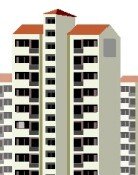[Opinion] Intellectuals Should Self-reflect
[Opinion] Intellectuals Should Self-reflect
Posted May. 31, 2001 09:21,
People are concerned that the society is on the verge of crisis. People say that there seems to be no solution for various crisis, such as the break down of education system, the disappearance of politics, and the economic crisis, which broke out simultaneously.
Although there are many people who deplore the difficult situation, there seems to be no persons who are willing to take responsibility. Rather, people desperately lay the blame on other people, while hiding their own faults. The opposition party criticizes the government-ruling party for pushing forward ill-equipped policies. The ruling party retorts the opposition party for ruining the reform by instigating a quarrel with the ruling party. With regard to the separation of hospitals and pharmacies, which is the representative case of the policy failure, the political circles, the government officials, the medical doctors’ association, the pharmaceutical association, and the civic organizations have tried to evade their own responsibilities. Instead of suggesting alternatives, intellectuals have also cynically responded or criticized like a hyena, which attacks only the vulnerable animals.
Even if one is not aware of a Chinese maxim, which says that `even a humble man has the responsibility for the vicissitudes of the nation`, can one say that only the government and the political circles have the responsibility for the social crisis? Of course, one cannot deny that the government-ruling party should take the biggest responsibility. However, neither the current crisis can be resolved, nor can one prevent another crisis, if everybody shuns one’s responsibility leaving a few scapegoats, as it was in the case of the IMF crisis. Especially, both intellectuals, who play important roles in forming the public opinion, and the expert groups, which give advice to the government in regard to the policies, should self-reflect on their roles.
I felt embarrassed by a scolding question raised by an audience at the education symposium to celebrate the anniversary of the foundation of the `vision@Korea`, which was established for the purpose of stimulating the intellectuals’ alternative suggestions. The question was ``what have the intellectuals been doing with regard to the misguided education policy of the government?`` I felt embarrassed because the question reminded me of the incident at a forum in which I participated a while ago. The forum was hosted by the Ministry of Education and Human Resources for the purpose of hearing the public opinions on the policy of the early retirement of teachers (middle- and high school) and the no-exam college entrance system.
Although I said that ``teachers should not be the object of reform`` at the forum, I agreed on the teachers’ early retirement policy. On the other hand, I disagreed with the no-exam college entrance system due to the anticipated side effects and the lack of the preparation by colleges. The hosting party seemed to be satisfied by my agreement on the teachers’ early retirement policy. It was also obvious that the hosting party would argue that the no-exam college entrance system was strongly supported by the Minister. Another pedagogist justified the government’s policy as an expert in education.
The forum represents the limits and the problems of intellectuals in our society. First, they pretend as if they are experts in a field in which they do not have expertise. For instance, the problem of the policy of teachers’ early retirement was that it ignored the educational setting. I should have not said anything about this policy since I was not familiar with the educational settings of the middle- and high school). Even if I could, I should have spoken as a parent, not as an expert. Second, intellectuals tend to be reluctant to offend the powerful counterpart, although they are aware of the counterpart’s wrongdoing. For instance, one surrendered the role of an expert by failing to persuade or explain the anticipated side effects of the issue only because it was `the Minister’s opinion and will.` Third, intellectuals tend not to take the responsibility of one’s own assertion. For instance, although the public opinion is not friendly, the pedagogist should be able to persuade the people, with the same degree of persistence devoted to the government’s policy based on expertise in education. However, this is not the case.
There are always full of criticism toward the former officials. The government policy swings from one extreme to another extreme due to the lack of the professional and systemic debates with regard to the government’s policy. Intellectuals are no longer perceived as trustworthy or reliable because of their `wait-and-see attitude` and their shifting words depending on the situation. This is why the government generates ill-equipped policies which ignore the expertise. Intellectuals cannot play the role of `salt` if they criticize others while not being able to see their own faults.
Oh Sae-Jung (professor at Seoul National University and guest editorialist of Donga Il-bo)
Headline News
- Joint investigation headquarters asks Yoon to appear at the investigation office
- KDIC colonel: Cable ties and hoods to control NEC staff were prepared
- Results of real estate development diverged by accessibility to Gangnam
- New budget proposal reflecting Trump’s demand rejected
- Son Heung-min scores winning corner kick







